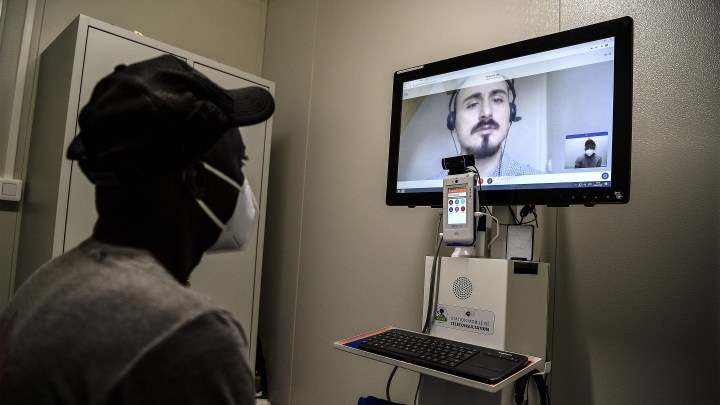
Will telehealth continue after the pandemic passes?
Will telehealth continue after the pandemic passes?

Treasure Valley Dermatology is a relatively new clinic in Boise, Idaho. But it’s only within the last few months that the clinic started seeing patients over a screen.
“Telehealth was something that we got into when the COVID pandemic really started to hit the area,” said dermatologist Dustin Portela.
Portela said that his profession requires a lot of in-person exams, but telehealth has worked great for following up with patients.
“We found that we can really keep patients out of the clinic when they don’t need to be here, to provide reassurance when they have a quick concern,” he said.
So far, Portela said 15% to 20% of the clinic’s patients have used it.
And they’re not alone. Telehealth has boomed for everything from physical therapy to counseling during the pandemic, even in rural states like Idaho.
“We’ve done 10 years of telehealth adoption in three months,” said Dave Jeppesen, director of the Idaho Department of Health and Welfare.
That’s a sentiment echoed by health care providers nationwide, but Jeppesen said there was a nearly 4,000% increase in telehealth claims just with Medicaid patients in his state.
“March, April and May of 2019, across all of Medicaid, we had about 3,000 telehealth visits that took place. And for that same time period here of 2020 … we had 117,500 telehealth claims,” he said.
To allow that expansion, federal and state governments temporarily rolled back dozens of regulations around Medicare and Medicaid, prescription access and security. For example, they allowed telehealth to be provided over non-HIPAA-compliant platforms like Zoom. But now that so many people use telehealth, lawmakers don’t want to go back to the way it was before.
In Idaho, Gov. Brad Little already signed an executive order that makes his state’s telehealth changes permanent.
“This step should help preserve these health care advances long after COVID-19,” he said, announcing his decision late last month.
More than 300 organizations have written to Congress, urging it to make its changes permanent, too.
Tennessee Republican Sen. Lamar Alexander urged caution around privacy and security during a recent Senate committee hearing, but he was one of the many lawmakers on both sides of the aisle who agreed that they should keep some changes.
“And we should do so while the experiences still are fresh on everyone’s minds,” he said, noting that we will likely face another pandemic down the road.
There was especially strong support for Medicare continuing to cover more telehealth services and covering people in more areas. But for telehealth to continue at this level in the future, private insurance companies have to be on board, too.
“It provides great options and great opportunities for people. But it also raises a number of questions about quality of care, about access, about connectivity,” said John Worley with Blue Cross of Idaho.
Historically, private insurance companies haven’t reimbursed for a range of telehealth services that can be provided over video or phone. Like providing counseling for patients with chronic conditions or helping those with behavioral health disorders, like addiction.
But Blue Cross of Idaho is covering those kinds of services now because of the pandemic. It’s maintaining telehealth coverage until the end of the year, and likely beyond that.
“We will continue to provide these services into the future and provide access,” Worley said.
At the moment, many insurers are paying the same amount for video visits as for office visits, but insurers will likely reevaluate that and consider paying less. How much those insurers pay will likely determine whether it’ll be widely adopted and used.
And for some patients, there will still be hurdles beyond insurance and regulations, like access to the internet at all.
There’s a lot happening in the world. Through it all, Marketplace is here for you.
You rely on Marketplace to break down the world’s events and tell you how it affects you in a fact-based, approachable way. We rely on your financial support to keep making that possible.
Your donation today powers the independent journalism that you rely on. For just $5/month, you can help sustain Marketplace so we can keep reporting on the things that matter to you.


















